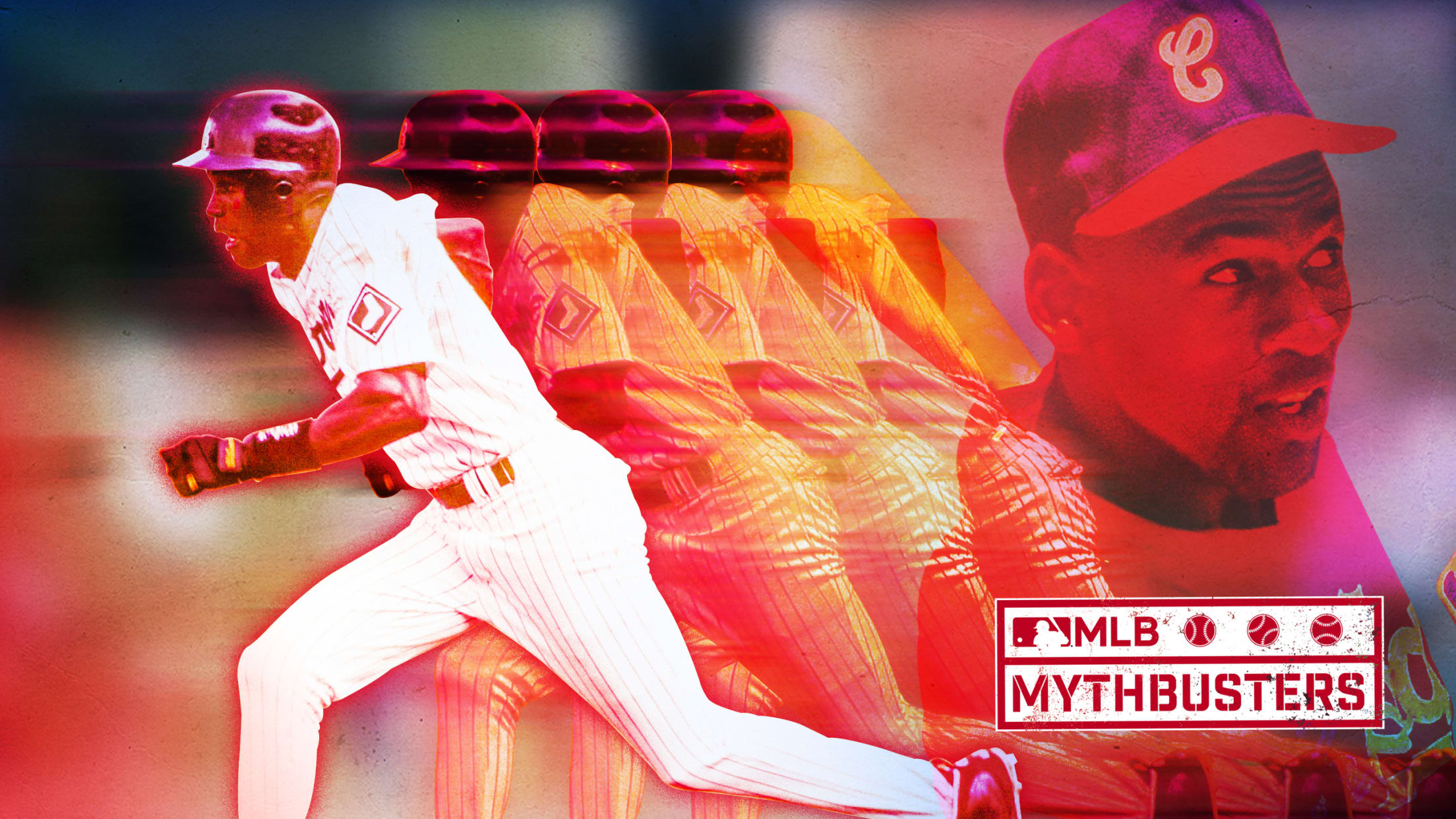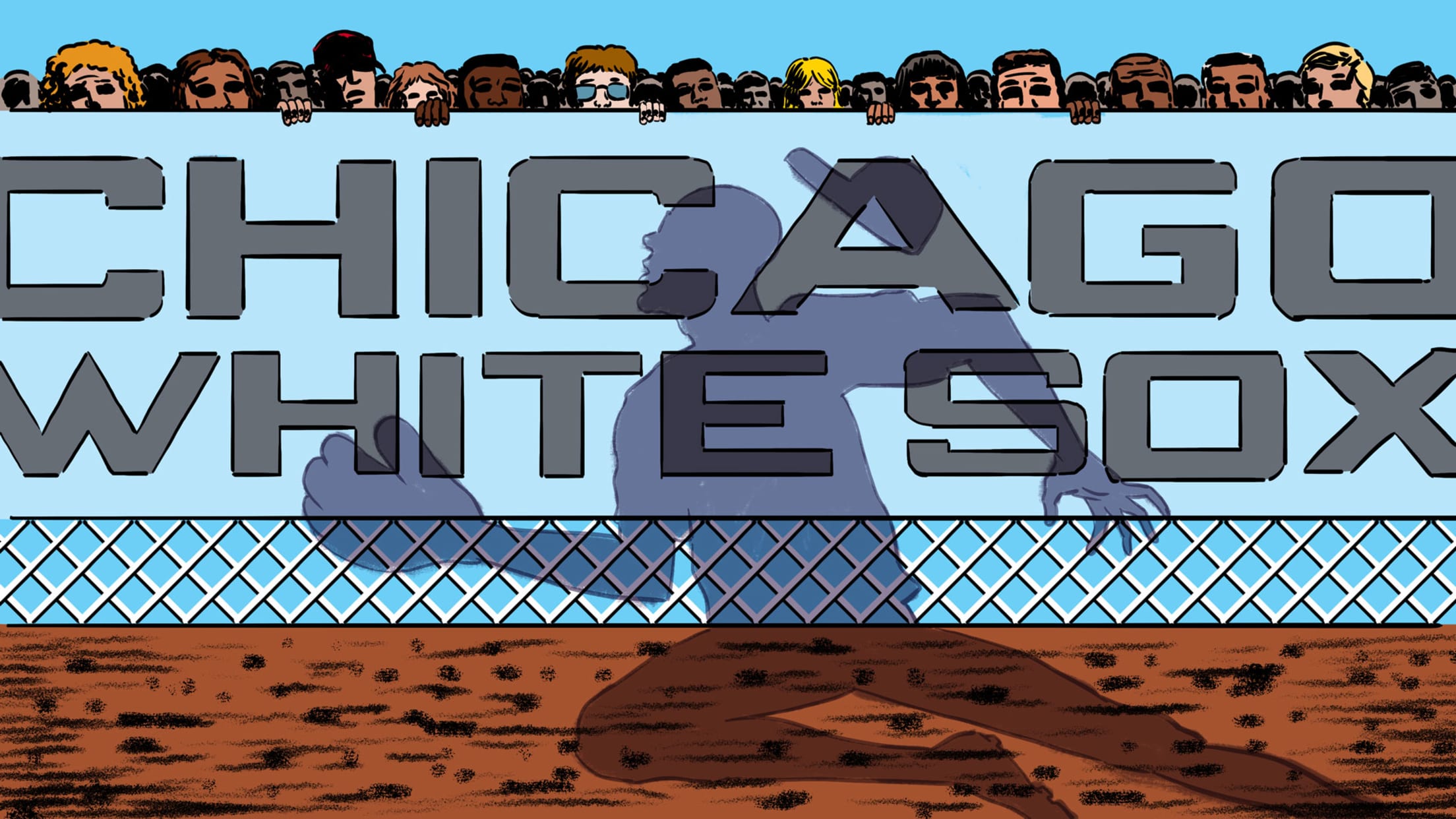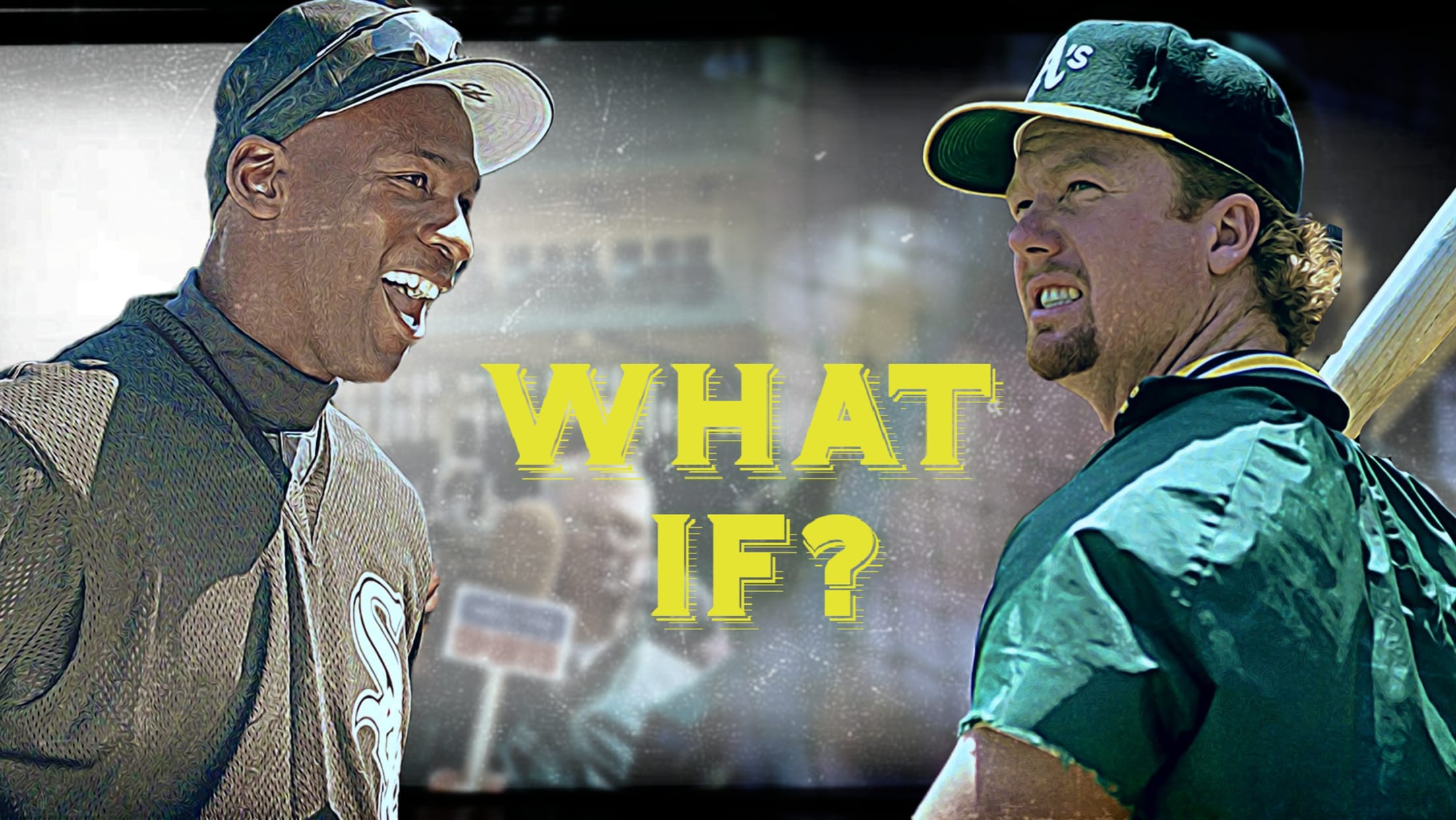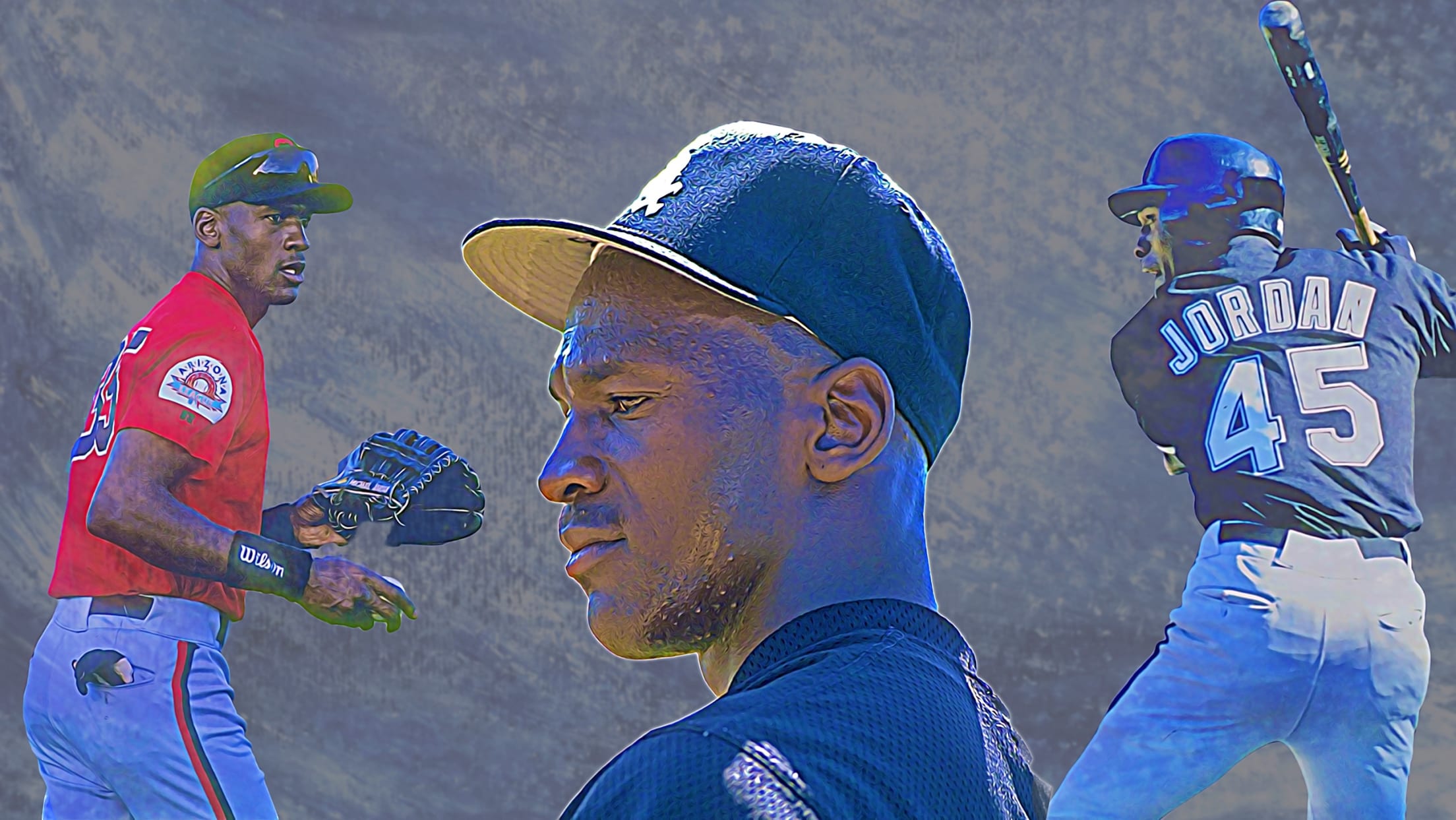
The real story of MJ¡¯s baseball career
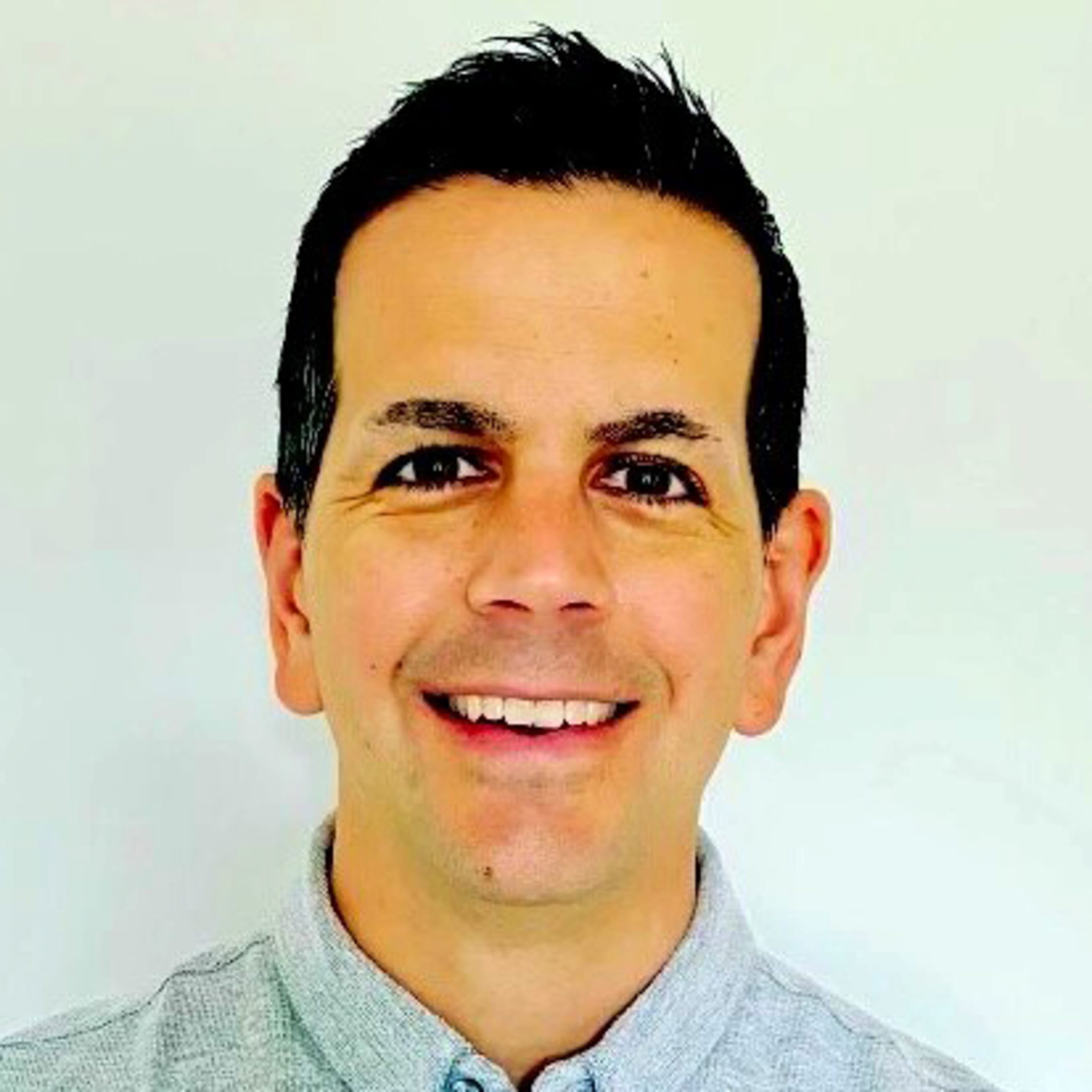
The catcher called for a slider. Kevin Rychel shook him off.
Rychel still asks himself, all these years later, why he did this. He rarely shook off the catcher back then, in the midst of a seven-year Minor League career in the Pirates¡¯ organization. But on this muggy July night in Birmingham, Ala., in a Double-A ballgame that would remain memorable only for this moment, Rychel¡¯s mind was in a haze, his shoulder was already ailing with what would turn out to be a torn labrum and his faith in his fastball was, only in retrospect, overly ambitious.
[Note: A version of this story originally ran on MLB.com in 2014.]
And so he left it over the middle for the lanky outfielder with the Mendoza-level batting average, and the bat connected with the weight of its 33 ounces and the anticipation of the thousands of eyes upon it. The ball sailed over the left-field fence, the crowd erupted and Rychel hung his head.
¡°What did you just do?¡± he asked himself.
Back in the visiting clubhouse, now pulled from the game, Rychel faced the same question from the manager of his Carolina Mudcats squad. Bob Meacham had been ejected from the game, and so the roar of the Hoover Metropolitan Stadium audience was his only clue to what had just transpired. Rychel wasn¡¯t prone to giving up the long ball. In fact, he allowed them at an entirely reasonable rate of 0.5 per nine innings in the course of his career. So Meacham never would have suspected that Rychel would be the one on the wrong end of this meaningful moment, that his image would be the one plastered on ¡°SportsCenter,¡± that his hotel phone would be the one ringing off the hook the next day.
¡°It happened?¡± Meacham asked.
¡°Yeah,¡± Rychel replied, ¡°it happened.¡±
Michael Jordan had hit his first home run.
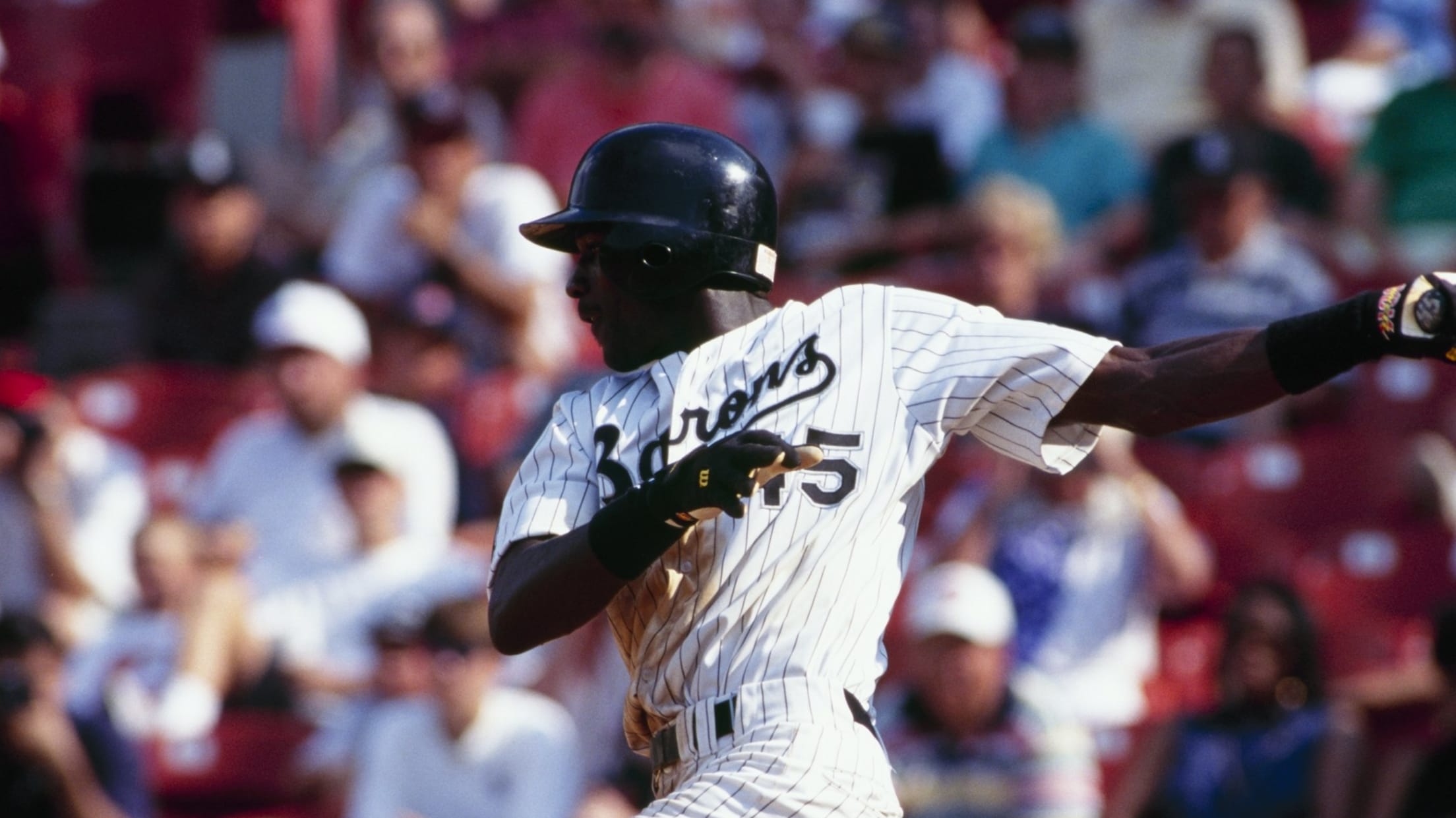
* * * * *
In 1994, Air Jordan did his time on the ground, in a stint with the White Sox as a light-hitting rookie in Double-A ball. Jordan¡¯s decision to leave the NBA at the utmost peak of his powers in order to pursue a short-lived career in professional baseball is still a source of curiosity.
The story goes that Jordan -- overpowered by the weight of his fame, burned out by his own brilliance on the basketball court and emotionally drained by the murder of his adored father -- pursued baseball as a new challenge and a welcomed distraction. And those in baseball who worked with and played with Jordan walked away impressed and convinced by the earnestness of this endeavor.
¡°He respected the game,¡± says Guardians manager Terry Francona, who managed Jordan with the Birmingham Barons. ¡°I love the guy. And I don¡¯t love the guy just in the press. I love the guy. I respect him. I appreciate how he handled everything.¡±
Francona is not alone in his opinion that Jordan could have made it to the Majors. Probably not as a star, mind you, but at least as a reserve, given the will and work ethic he put into refining his God-given talents.
The then-31-year-old Jordan invested his heart and soul into a sport that fundamentally flexes different fast-twitch muscles, a sport he had abandoned as a teenager, a sport his dad would wistfully muse about in those contemplative conversations between father and son. Sports Illustrated famously begged Michael to ¡°bag it¡± in the headline that would cost them future quotes from the iconic figure, but Jordan¡¯s quest in this and every athletic pursuit was to conquer the conquerable, attain the unobtainable.
¡°SI completely missed the story,¡± says David Falk, Jordan¡¯s agent. ¡°Michael Jordan gave up everything he had earned as the king of basketball to play Minor League baseball and subject himself to criticism. He put everything on the line to compete, with nothing to gain. That is the essence of sports. To this day, SI has never apologized to Michael, and he'll never talk to them.¡±
Such is the competitive instinct of His Airness.
¡°If you told him no,¡± Francona says, ¡°he was going to find a way to make it a yes.¡±
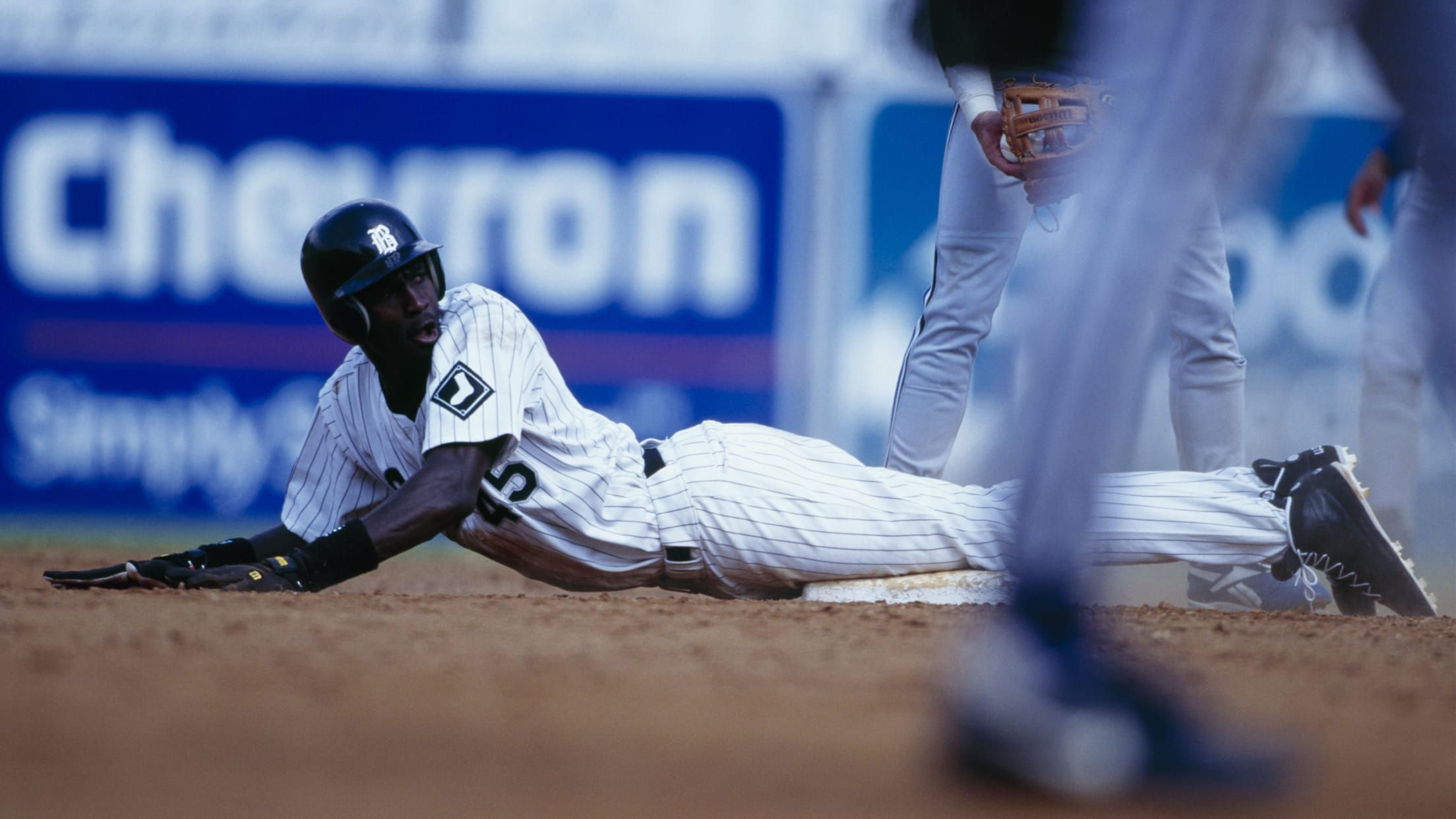
* * * * *
Jordan hit .202 in Birmingham, and that number means different things to different people.
To some, .202 was confirmation that Jordan was in over his head, that he wasted a year of his basketball prime in order to humiliate himself in the dregs of the Minors.
To Francona, .202 is a source of pride, because he knows how hard meeting round ball with round bat inherently is and how much Jordan improved as the long summer wore on.
To Walt Hriniak, the former White Sox hitting guru who worked intensely with Jordan that spring, .202 was actually a source of disappointment.
¡°I didn¡¯t expect him to tear it up,¡± Hriniak says, ¡°but I expected him to do better.¡±
Hriniak¡¯s seemingly unusual opinion doesn¡¯t sound so unusual at all when you dig deeper into the work that went into getting Jordan ready for his Double-A debut.
Once Jordan had publicly announced his retirement to a stunned NBA community and privately announced to Bulls and Sox owner Jerry Reinsdorf his intentions to switch sports, one of the first people to learn of the experiment was Herm Schneider, the longtime athletic trainer for the Sox. Reinsdorf called Schneider with word of a ¡°special project¡± just before Thanksgiving in ¡¯93, and soon Schneider was instructing Jordan on rotation workouts to tighten up his core and palm training to toughen up his hands.
¡°He¡¯s a great athlete in basketball,¡± Schneider says. ¡°When it came to baseball, he was a little bit like a duck out of water. He loved baseball, but he didn¡¯t necessarily have that body awareness that you need. So we had to teach him.¡±
Here is the greatest basketball player of all time, and he¡¯s looking at me to say, ¡®Teach me.¡¯
Mike Huff, former White Sox outfielder and Jordan's training partner
Another tutor brought in for that winter work was Mike Huff, one of the outfielders against whom Jordan would actually be competing for a roster spot in camp.
As a Chicago-area resident with superb defensive skills, Huff was directly requested by Reinsdorf to assist in the effort with M.J. in the bowels of Comiskey Park and at the Illinois Institute of Technology¡¯s massive gym. This was an inherently awkward arrangement, given that the Sox had yanked Huff back and forth between the bigs and the Minors the previous season and he had his own position to compete for (he would, in fact, be traded to Toronto at the end of the upcoming spring). But Huff came to the conclusion that the Sox weren¡¯t going to take anything other than the best 25 guys when camp broke.
Besides, this was Michael freaking Jordan. Who could say no?
¡°For me, having grown up in Chicago and watched him win those first three championships, the whole thing was surreal,¡± Huff says. ¡°Because here is the greatest basketball player of all time, and he¡¯s looking at me to say, ¡®Teach me.¡¯¡±
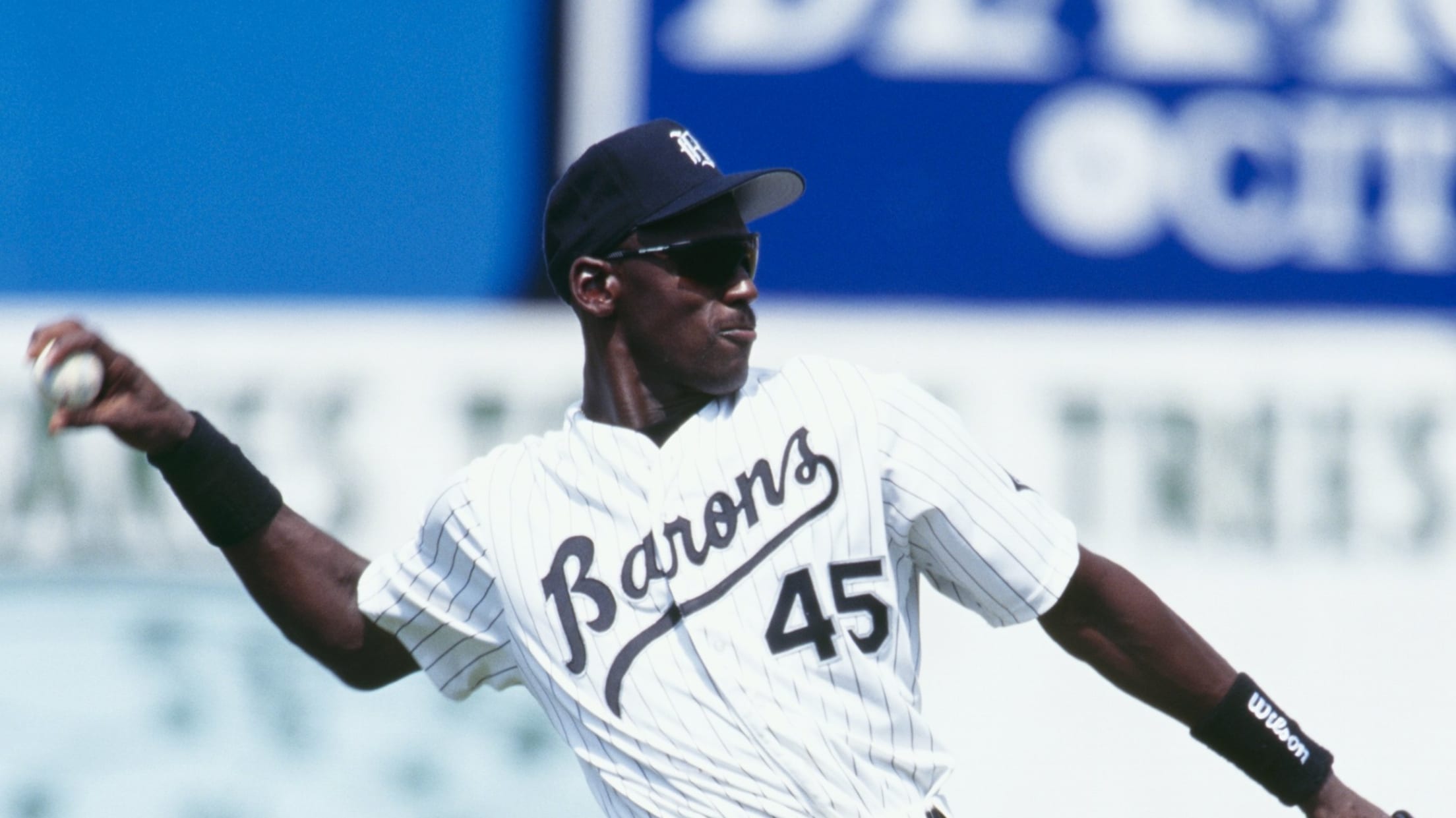
Huff taught him how to properly hold a baseball, how to throw, how to slide, how to train his feet to be ready for the footwork of the position. Jordan was an eager and tireless learner, so much so that Huff would, at times, forget what level of celebrity he was dealing with.
There was one Friday morning when Jordan showed up with Richard Dent, the great defensive end for the Chicago Bears, and said the two would be flying to Phoenix that afternoon for a weekend of golf with Charles Barkley. As the day wore on, Huff kept looking at the clock and kept worriedly asking if Jordan was going to have enough time to catch his flight at O¡¯Hare. Jordan finally had to set him straight.
¡°Mike,¡± Jordan said, ¡°I have my own plane. It¡¯ll leave when I get there.¡±
¡°Oh, right,¡± Huff thought to himself, ¡°this guy¡¯s got lots and lots of money.¡±
So much money, so much fame and so little experience in baseball that there would have been ample reason for guys like Huff -- grinders just trying to attain some level of big league stability -- to be resentful of this undertaking. When Jordan signed a Minor League contract on Feb. 7, 1994, and he reported to Spring Training camp in the middle of the month, he didn¡¯t just have to prove himself to the prying eyes of the public but also to the men he¡¯d be suiting up alongside.
If everybody was like M.J. the game would be better.
Walt Hriniak, former White Sox hitting guru
Hriniak arrived to that camp, found it packed with reporters and curious fans and worried what kind of dog and pony show the Sox had just gotten themselves into. So he waited for Jordan to finish his first round in the cage, went to the outfield where Jordan was shagging fly balls and looked the new acquisition in the eyes.
¡°I just want to know one thing,¡± Hriniak asked him. ¡°Are you serious about this?¡±
¡°Dead serious,¡± Jordan replied.
¡°All right,¡± Hriniak said. ¡°If you want some help, I¡¯ve got time in the cage for extra hitting practice at 7 a.m. If you¡¯re one second late, you don¡¯t hit.¡±
Jordan never missed a day, and he was never late.
¡°If everybody was like M.J.,¡± says Hriniak, ¡°the game would be better.¡±
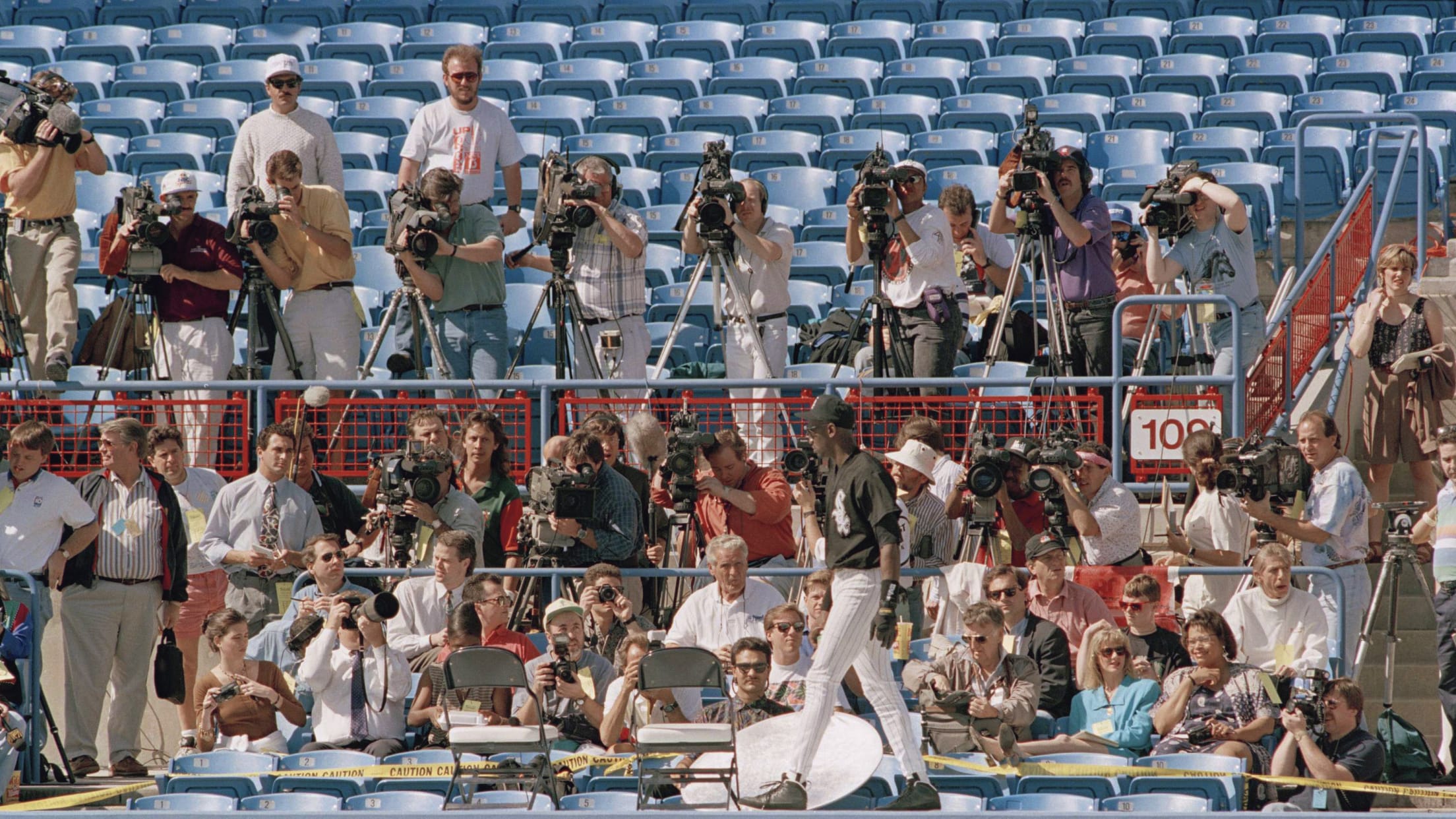
* * * * *
Jordan¡¯s devotion extended to his interactions with teammates, with fans, with the media.
When Sox manager Gene Lamont caught wind of the team¡¯s plans to only make Jordan available to reporters every third day that spring, he asked Jordan to reconsider.
¡°I think [Jordan was concerned] he was taking away from the other guys if he [talked] more than that,¡± Lamont says. ¡°But I didn¡¯t think Frank [Thomas] or Robin [Ventura] or the other players needed to talk about Michael the days he wasn¡¯t talking. He was receptive to that.¡±
He was also receptive to the ample requests for autographs, both from his teammates and those in the stands.
¡°It was incredible,¡± says David Schaffer, the Sox¡¯s former director of park operations. ¡°He¡¯d be at the game all day, it would be 80-90 degrees, the sun is out, the humidity is about 300 percent, and he would stand there and just sign and sign and sign. Everybody else had already showered and gone home, but he¡¯d be standing there every day. And it wasn¡¯t just because the press was there, because they¡¯d already be gone, too.¡±
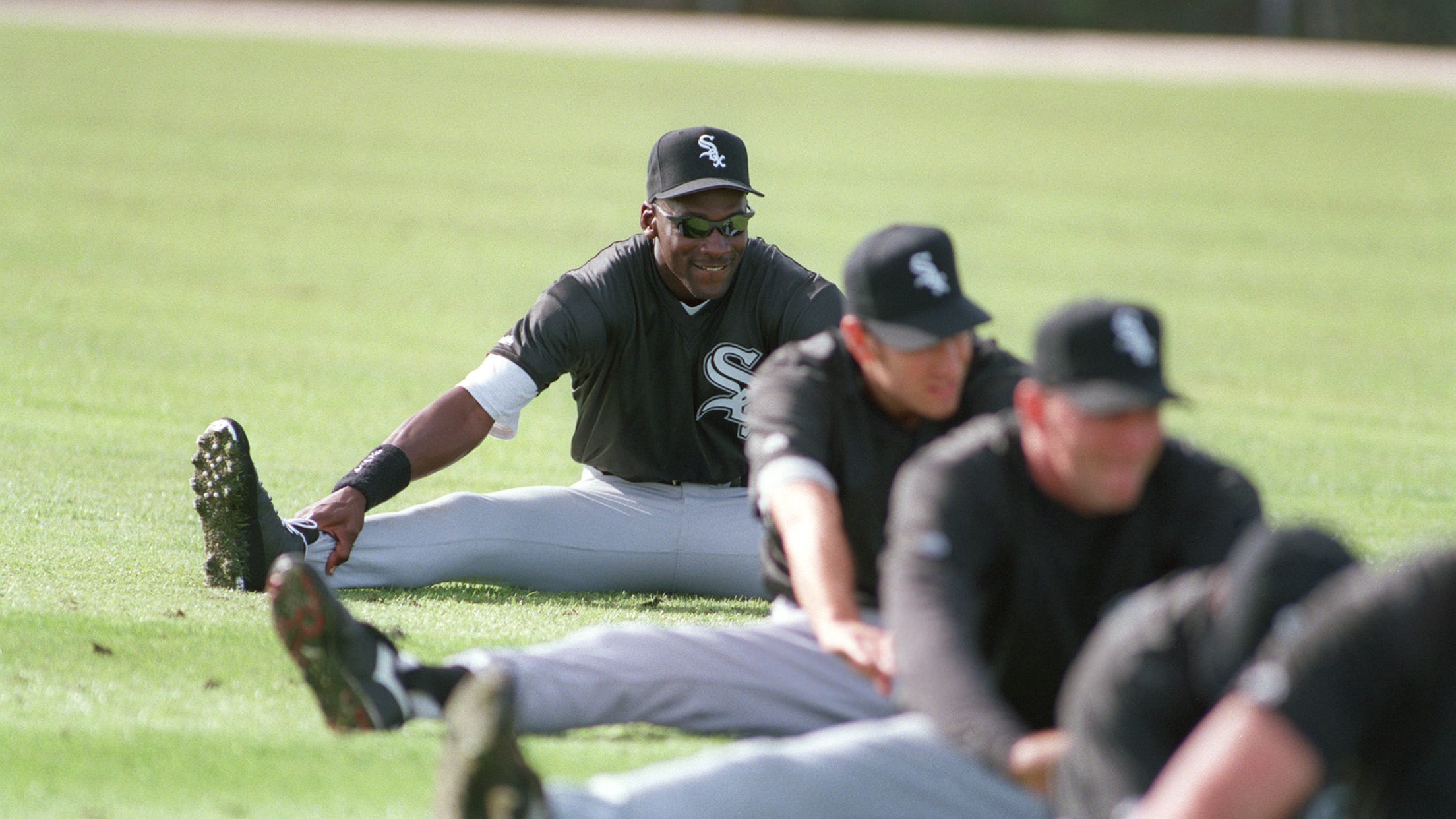
Jordan would tell his teammates to leave anything they wanted autographed in Schneider¡¯s office and he¡¯d take care of it at the end of each day. When guys would inquire about shoes or gear, Jordan would reach out to his Nike contacts, and a package would be delivered within a day or two.
¡°A guy from Venezuela asked him to sign a basketball for him,¡± Schaffer remembers. ¡°He said to Michael, ¡®If you autograph a baseball for me, it¡¯s worth $100. If you autograph this basketball and I take it back home, I can feed my family for a month.¡¯¡±
Naturally, Jordan signed it, just as he would sign for those fans who would swarm his red Corvette when it stopped at a red light in the streets of Sarasota that spring or in Birmingham that summer.
The Barons drew over 467,000 fans at home and played to packed houses at every stop on the road that season, establishing attendance records that won¡¯t soon be broken. So baseball did not provide the basketball burnout with much opportunity to be inaccessible.
But the long bus rides that came with life in the Southern League gave Jordan a needed chance to tune out the outside world, and he welcomed them, just as his teammates welcomed the plush new rig he provided in exchange for an endorsement with a local bus company.
Jordan also didn¡¯t complain about the accommodations at the various La Quinta Inns where the Barons bunked.
¡°I don¡¯t know about now,¡± Francona says with a smile, ¡°but they didn¡¯t have suites at the time.¡±
* * * * *
Decades later, any analysis of Jordan¡¯s time in baseball is admittedly incomplete. We know he hit .202, struck out 114 times and committed 11 errors that summer in Birmingham. We also know he stole 30 bases and drove in 51 runs. He followed up the Birmingham season with an encouraging effort in the Arizona Fall League, batting .252 against some of the game¡¯s elite prospects.
What mars the story, though, is the abruptness of the ending. Jordan reported to Spring Training camp in 1995 but vowed not to cross the picket line should the ongoing war between the owners and players¡¯ union not be resolved by the time exhibitions began. Where some players in Jordan¡¯s circumstances might have seen opportunity in the strike, Jordan was a past NBA player representative who appreciated the integrity of the union. So as replacement players were summoned, Jordan slid out of Sarasota in early March. He was back in the Bulls¡¯ lineup roughly two weeks later.
We¡¯ll never know if Jordan¡¯s baseball career would have continued much longer had the strike not intervened. Francona, for one, got the sense, by the end of that summer with the Barons, that Jordan was getting the itch to return to his first love, to be a superstar again.
But baseball -- and its inherent demands for patience and perseverance -- seemed to teach Jordan something elemental.
Bulls coach Phil Jackson would remark, years later, that the Jordan who returned in ¡¯95 was different than the one who departed in ¡¯93. This Jordan was more generous with his time, more encouraging to his teammates. And Jordan himself would admit that watching guys who were, in some cases, 10 years younger passionately pursue their baseball dreams in that unpretentious setting of Double-A stirred something in his soul.
¡°[I realized] I had kind of lost that in the realm of what was happening to me in basketball,¡± he once said. ¡°I was on the pedestal for so long that I forgot about the steps to get to that. That¡¯s what Minor League baseball did to me.¡±
And the stint certainly left impressions on those around him.
Huff looks back fondly at those winter workouts as a perfect precursor to the work he¡¯s done as the longtime vice president of operations for the Bulls/Sox Academy, a youth development facility. Francona¡¯s experience with a superstar at that early stage of his managerial career was a perfect precursor to what he¡¯d encounter when he took over a Red Sox club loaded with outsized personalities a decade later. Lamont admits that, for all the distractions the Jordan situation could have caused for his defending division champs that spring, he simply got a kick out of it. Schaffer considers Jordan one of the classiest people he dealt with in more than 30 years with the Sox.
And then there¡¯s Rychel. He long ago gave up his big league dreams and went into a career in the food industry, where he is currently the vice president of operations for a fast-casual Mexican chain. To this day, he still wishes he had thrown that slider to Michael Jordan.
In the weeks leading up to July 30, 1994, word had gotten around the Southern League that Jordan was showing improvement, hitting the ball harder, capitalizing on more mistakes. And that night, Rychel made a costly one. He can laugh now about the night he got ¡°posterized¡± by Air Jordan, and, looking back, his pitch selection isn¡¯t his only regret.
¡°Through it all,¡± Rychel says with a laugh, ¡°I never even got an autograph.¡±
But like so many others in baseball who crossed Michael Jordan¡¯s path in 1994, he got one heck of a memory.
